
9 Secluded Towns in Washington
Washington state is home to a diverse range of landscapes, from rugged coastlines to dense forests and mountain ranges. Tucked away in these varied terrains are small, secluded towns with populations under 10,000. These towns, often rooted in rich history and influenced by natural surroundings, offer an escape from urban life and provide opportunities for quiet exploration. From La Conner by the Skagit River to Stehekin on Lake Chelan, each of these nine towns carries its own historical background; they share a common appeal of remoteness and opportunities for visitors to engage with nature and local heritage.
La Conner
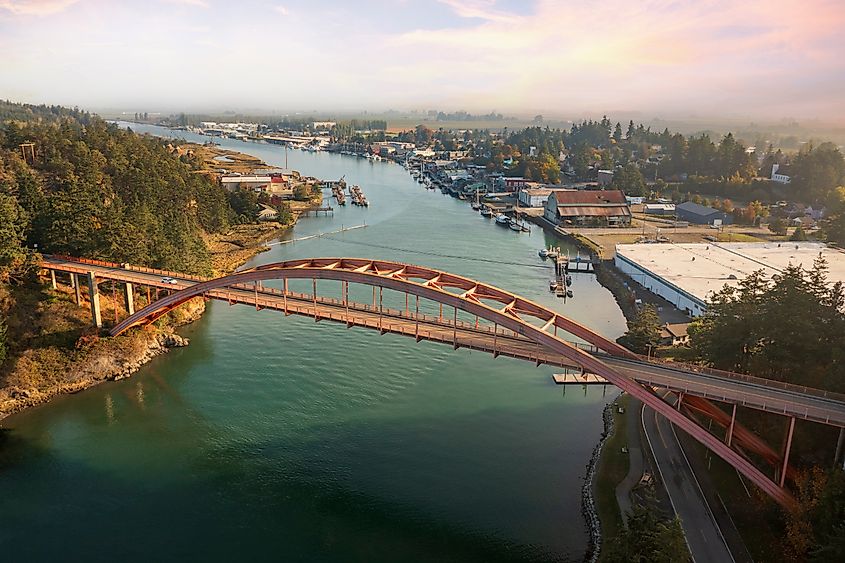
La Conner is a small town located along the Swinomish Channel in Skagit County, about halfway between Seattle and the Canadian border town of Abbotsford, British Columbia. The town was originally settled in the 1860s and grew due to its position as a trading post and farming community. Despite its small population of fewer than 1,000 residents, La Conner has a deep connection to local agriculture and the arts. It is also known for its proximity to the Skagit Valley tulip fields, making it an important location for the regional agricultural economy. The town's historic roots are reflected in its buildings, many of which date back to the late 19th and early 20th centuries.
In La Conner, visitors can explore Pioneer Park, which provides walking paths along the water. A walk along the Rainbow Bridge has views of the Swinomish Channel and the local fishing activities. The town also has the Skagit County Historical Museum, which presents exhibits on the early history of the area, specifically focused on local settlers and Indigenous communities.
Friday Harbor
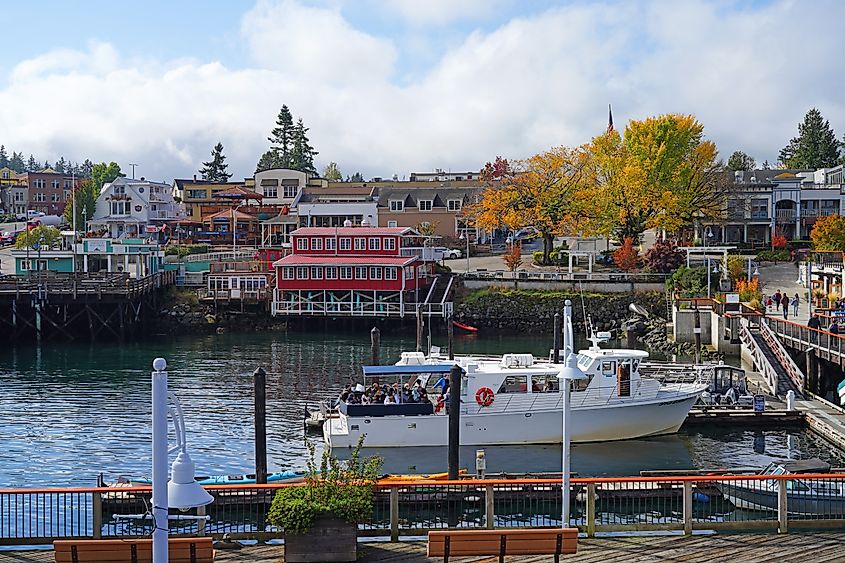
Friday Harbor is situated on the secluded San Juan Island and serves as the county seat of San Juan County. It became a hub of activity in the late 1800s due to its strategic location for shipping and fishing. Accessible only by ferry or plane, it remains a point for regional commerce and tourism in the San Juan Islands. The town has a long maritime history, having been involved in the fishing industry, which continues to influence its character today.
Visitors to Friday Harbor can hike to Lime Kiln Point State Park, where they can view orcas and other marine life. The American Camp and English Camp National Historical Parks have walking trails and insight into the Pig War conflict between the US and Britain. In addition, visitors can take advantage of the island’s coastline by exploring the nearby San Juan Islands Sculpture Park, which is spread across acres of natural landscape.
Winthrop

Winthrop, located in Okanogan County, is known for its Western-themed architecture and is part of the Methow Valley. The town was established in the late 1800s as a mining and ranching hub. In the 1970s, Winthrop adopted a Western theme to attract visitors, but its roots in mining and agriculture remain significant. Its surrounding geography has made it a destination for outdoor enthusiasts.
In Winthrop, visitors can explore the Methow Valley by walking the Methow Community Trail System, a vast network of trails suitable for hiking or cross-country skiing. The Shafer Historical Museum offers insights into the town's mining history, thanks to its historic buildings and mining equipment. Lastly, the town is a gateway to North Cascades National Park, where visitors can explore numerous trails and natural sites.
Twisp

Twisp is another small town in the Methow Valley, also located in Okanogan County. The town developed as a center for agriculture and mining in the early 20th century. While it shares similarities with its neighbor Winthrop, Twisp has grown into a small community with a strong focus on the arts, holding a different identity than its Western-themed counterpart.
The TwispWorks Cultural Center is a non-commercial community space that promotes local arts and crafts. Additionally, travelers can hike along the Twisp River Trail, which follows the river and has access to birdwatching, fishing, and views of the surrounding wilderness.
Republic
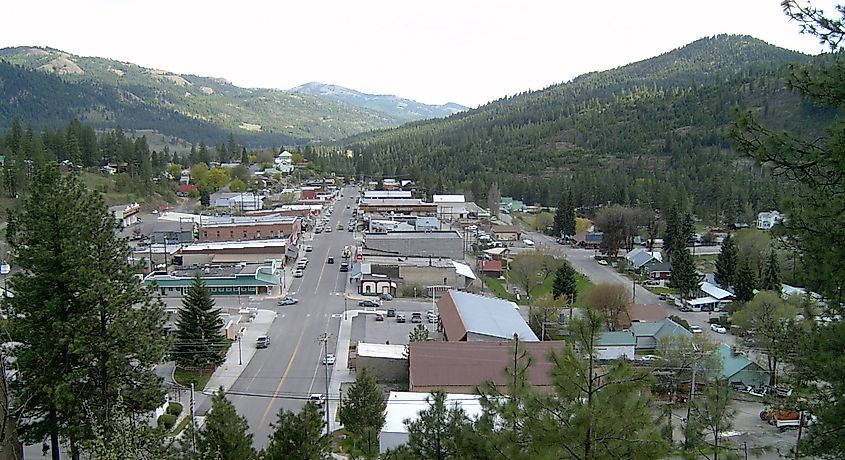
Republic is the county seat of Ferry County, tucked away in a secluded location in northeastern Washington. It was founded during the gold rush in the late 1800s and grew as a mining town. Gold and other minerals attracted prospectors to the area, and mining continued to be a significant part of the local economy into the 20th century. The town retains a historical character closely tied to its mining origins.
Republic offers visitors the chance to experience Curlew Lake, where they can enjoy fishing or walking along the lakeshore. The Stonerose Interpretive Center allows people to dig for fossils and learn about the area’s prehistoric past. Nearby, the Colville National Forest has ample trails and outdoor space for hiking.
Roslyn

Of the beaten path, in central Washington, Roslyn is part of Kittitas County. It was founded in the late 1800s as a coal mining town and grew rapidly as miners from different ethnic groups settled in the area. Roslyn played a key role in supplying coal for the Northern Pacific Railway. Its history is visible in the local cemetery, which is divided into sections based on ethnic communities that lived and worked in the town.
Visitors to Roslyn can explore the Coal Mines Trail, which follows the path of an old railway line and connects several former mining sites. For nature enthusiasts, nearby Cle Elum Lake is ideal for hiking and wildlife observation.
Coupeville
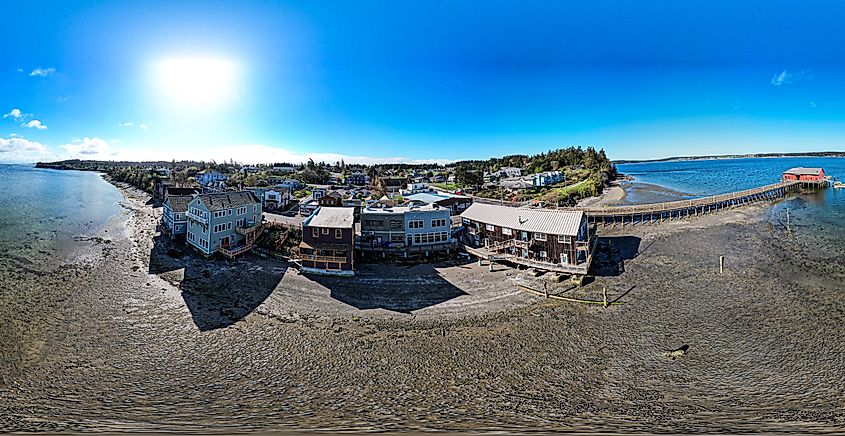
Coupeville, concealed away on Whidbey Island, is one of the oldest towns in Washington, with roots tracing back to the 1850s. The town developed as a center for shipping and trade and became part of Ebey's Landing National Historical Reserve, preserving its historical significance. The well-preserved buildings reflect its early days as a frontier town, with many structures still in use today.
Visitors can explore Ebey's Landing, where hiking trails offer views of the island’s coastal ecosystem. The Island County Historical Museum presents exhibits on the early settlers of Whidbey Island and the US Native American tribes that lived there before. Another option is to visit Fort Casey State Park, which contains old military fortifications and scenic walking trails along the shore.
Langley

Langley, also located on Whidbey Island, was established in the late 19th century and has a history rooted in logging, farming, and maritime trade. It may be only an hour away from downtown Seattle, but it feels like a remote vacation destination. The town developed into a small community that became a retreat for those seeking quiet living on the island. Its waterfront location made it a natural point for local industry and commerce.
Visitors to Langley can walk along Seawall Park, where views of Puget Sound and Mount Baker are available. The town also has the Langley Whale Center, which educates visitors about the marine life in the surrounding waters. Another option is the South Whidbey State Park, where hiking trails lead through old-growth forests and along the island's coastline.
Stehekin
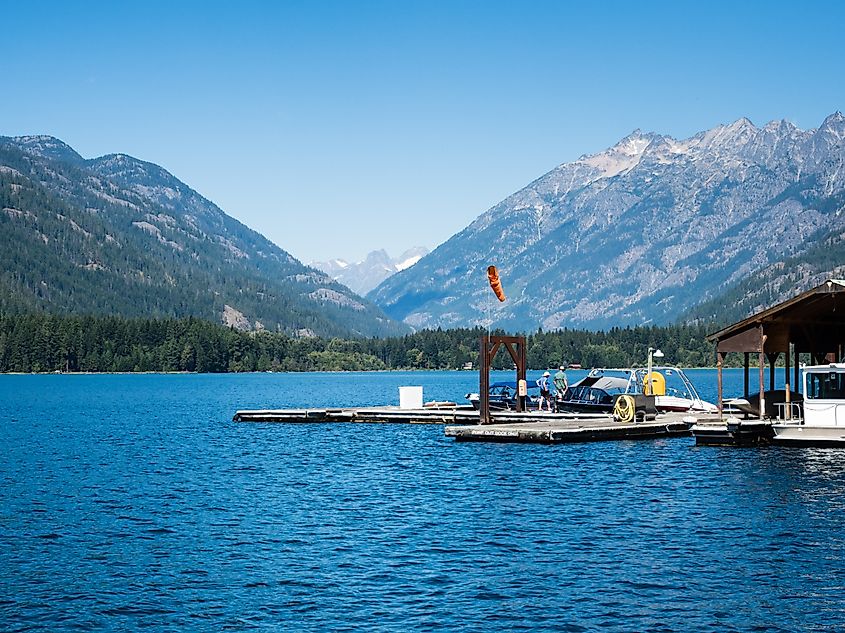
Sequestered away in the mountains, Stehekin sits at the head of Lake Chelan, which is one of the most remote towns in Washington, accessible only by boat, plane, or hiking trails. Its isolation has preserved its small population, and the town has served as a gateway to the North Cascades for generations. It was initially settled in the late 1800s, with farming and tourism being the primary economic activities.
Visitors to Stehekin can explore the North Cascades by hiking along the Pacific Crest Trail, which passes near the town. The Stehekin River has opportunities for non-commercial fishing and boating. Additionally, travelers can visit the historic Buckner Homestead, a preserved farm that showcases life in the valley during the early 20th century.
The secluded towns of Washington state provide a rare glimpse into places where history and nature intertwine, far removed from the fast pace of modern life. These destinations are not only rich in historical significance but also present activities that allow visitors to connect with the natural world and explore local heritage. Whether hiking through preserved forests, walking along historic trails, or visiting sites tied to the region’s past, these towns offer quiet and meaningful experiences for those seeking to escape crowded tourist destinations.











